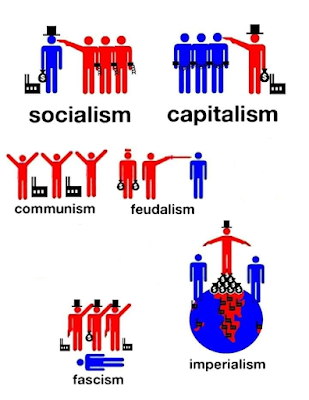Colonialism, Imperialism & World War I
Colonialism
- Colonialism is the extension of a nation’s sovereignty over another territory beyond its borders.
- 17th century, England, France and Holland successfully established their own overseas empires, in direct competition with each other and those of Spain and Portugal.
- Industrialization of the 19th century led to what has been termed the era of New Imperialism.
- Fight among the European countries to control and establish new colonies led to the First World War.
- Types of Colonies
- Settler colonies - United States of America, Canada, Australia, New Zealand and Argentina displacement of the indigenous peoples.
- Colonies of dependencies - conquest by foreign countries. Ex: British India, Dutch Indonesia.
- Plantation colonies - colonizers imported black slaves. Ex: Barbados, Saint-Dominguez and Jamaica.
Imperialism
- Policy of extending control or authority over colonized countries or policy of a nation’s dominance over distant lands.
- Imperialism refers to the highest stage of capitalism, made it necessary to find new markets and resources
- Theory of necessary expansion of capitalism outside the boundaries of nation-states was shared by Lenin and Rosa Luxemburg
Economic Market
- Find new markets for their industrial goods & Find raw materials for their industries.
Improvement in Communications
- Helped imperialism to have a firm hold over the conquered territories.
Rise of Extreme Nationalism
- Each country wanted to have colonies to add to its prestige and power.
- Institution to promote the idea of imperialism.
The ‘Civilizing Mission’
- bringing civilization to the ‘backward peoples of the world.
- Explorers, adventurers & missionaries helped in spreading imperialism.
US Imperialism
- Sole superpower, Beginning at the end of World War II.
- Influence in the Middle East such as Egypt, Iran, Iraq, Afghanistan, Saudi Arabia, Syria, Lebanon, and Israel have all been directly or otherwise substantially influenced by U.S. policy.
First World War (1914 -1919)
Causes
System of Alliances
- To isolate France, Germany entered in to an alliance with Austria.
- Bismarck formed the three Emperors League by making alliance with Russia.
- Russia left, Germany continued its alliance with Austria alone - Dual alliance. later Italy joined became Triple alliance.
- Russia began to lean towards France, Franco-Russian alliance against Austro-German alliance.
- England alliance with Japan in 1902. In 1904 alliance with France, In 1907 Russia joined this alliance became Triple Entente.
Militarism
- In Europe, England and Germany were superior in Navy.
- Narrow Nationalism also cause for the war.
- People of France to get back Alsace-Lorraine was also a cause for the outbreak of First World War.
- William II, wanted to make Germany a stronger power.
- Prussian spirit by Germany, taught war was a legal in the world & national industry of Prussia.
Public Opinion
- Inflame nationalist feeling by misrepresenting the situations in other countries.
Recover of Trentino
- The desire of Italy to recover the Trentino, areas were inhabited by Italians but still part and parcel of Austria-Hungary.
- Italy also entered into a competition with Austria to control the Adriatic Sea.
- Bitterness in the relations of these two countries.
The Eastern Question
- Misrule of Turkey & rivalry between Greece, Serbia and Bulgaria for the control of Macedonia.
- Bosnian crises Russia supported Serbia.
- Bosnia and Herzegovina were given to Austria-Hungary by the Congress of Berlin in 1878, opposed by Serbia.
- Created rivalry between Serbia and Austria- Hungary.
Immediate Cause
- Arch Duke Francis Ferdinand heir to the Austrian throne, Arch Duke Francis Ferdinand and his wife were assassinated by Serbians
- Austria-Hungary take advantage of the new situation to crush her.
- Austria-Hungary backed by Germany declared war on Serbia, Russia mobilised her forces in favour of Serbia.
Course of the War
- Germany and her allies - Central Powers.
- England and her allies - Allied Powers.
- Italy left the Triple Alliance and joined the opposite camp to recovering Italian territories under Austrian control.
- England joined the war against Germany - Battle of Verdun.
- 1917, Revolution in Russia & New Bolshevik regime wanted peace with Germany. Brest-Litovsk Treaty was signed between Russia and Germany.
- Lusitania ship was drowned by a German submarine and consequently many Americans lost their lives, Result USA declaration of war against Germany. Germany surrendered in November 1919.
Results of the War
- About 25 nations had joined the allies at the time of the outbreak of war.
- World economy was in shambles.
- Germany was forced to sign the Treaty of Versailles on 28th June 1919.
- Austria Hungary signed the Treaty of St. Germaine.
- Hungary signed the Treaty of Trianon.
- Bulgaria had accepted the Treaty of Neuliy in 1919.
- Turkey Sign the Treaty of Sevres in 1920.

.png)

Comments
Post a Comment